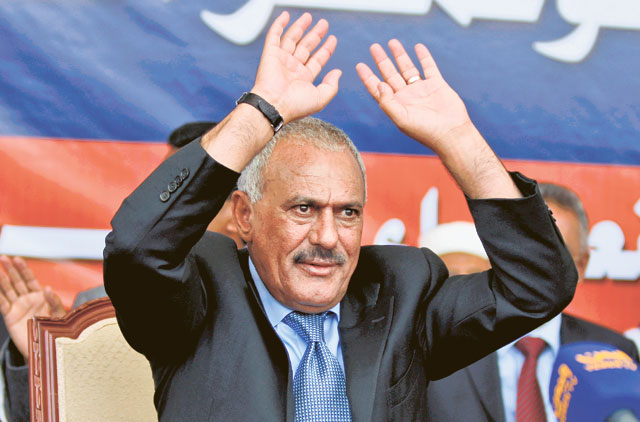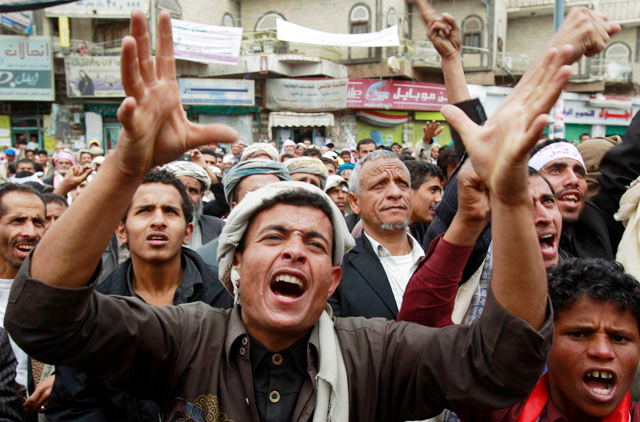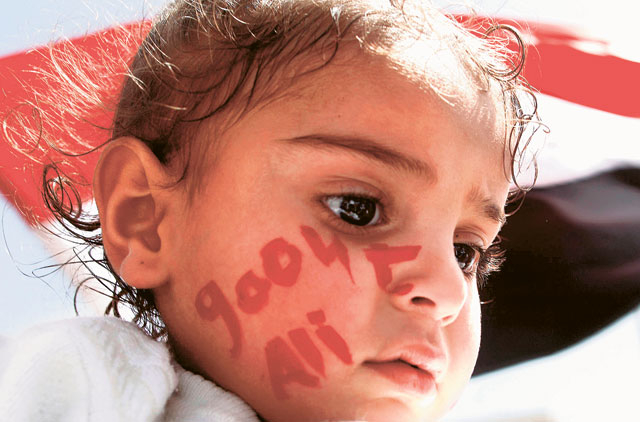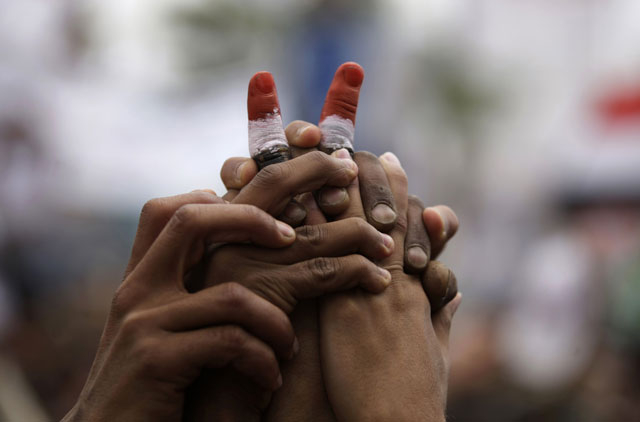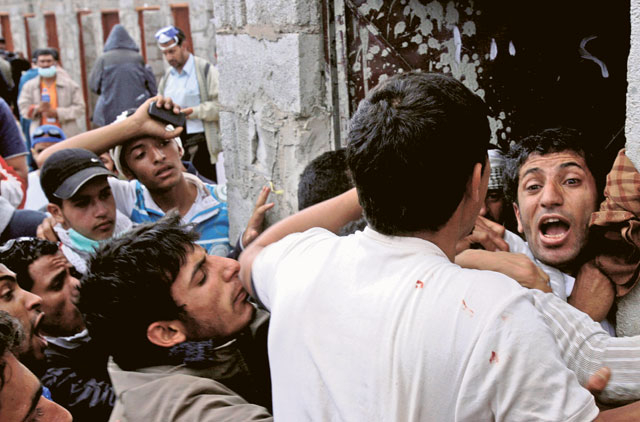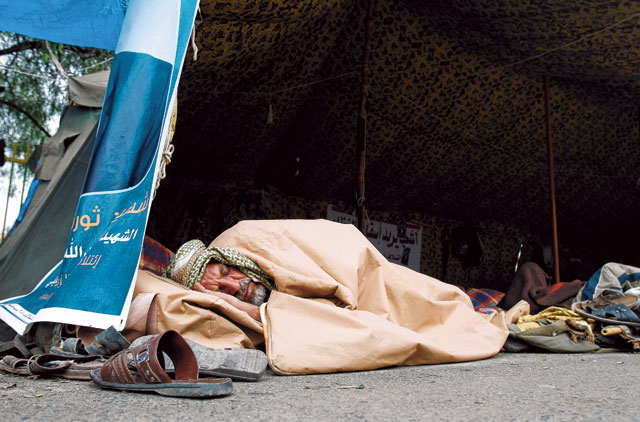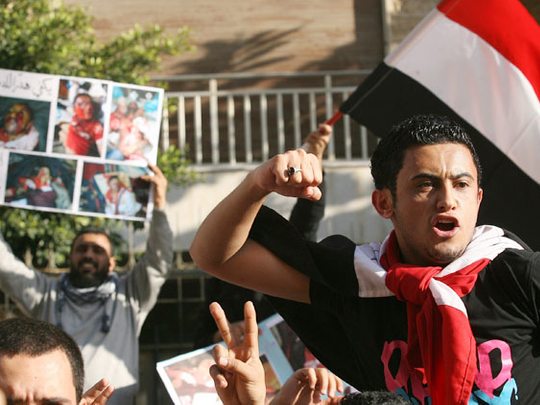
Sanaa: Yemen’s embattled President Ali Abdullah Saleh on Sunday sacked his government in the face of massive protests demanding his resignation, the state news agency Saba reported.
Saleh’s move comes after the country’s most powerful tribe called on Saleh to step down after his bloody crackdown on protesters.
“The president has dismissed the government but asked the cabinet to remain in a caretaker position until a new one is formed,” Saba said.
The announcement came as tens of thousands of people turned out in Sana’a yesterday for the funerals of many of the 52 people gunned down by Saleh loyalists two days earlier.
The victims were killed on Friday when snipers raked demonstrators near Sana’a University square with bullets from surrounding rooftops.
The protest movement against Saleh started in late January.
Earlier, Shaikh Sadiq Al Ahmar, leader of Saleh’s Hashed tribe, and several religious leaders, issued a statement asking Saleh to respond to the people’s demand and leave peacefully.
Yemen still awaits regional mediation led by Saudi Arabia to defuse the political crisis despite the bloodshed on Friday, which stopped mediation efforts.
A statement from the office of President Ali Abdullah Saleh late on Saturday said that the Saudi-led mediation is still "welcome and will always be welcomed."
Meanwhile, Yemen's ambassador to the United Nations has resigned in protest over the violence against demonstrators, a foreign ministry official said. Earlier, Yemen's most powerful tribe has called on President Ali Abdullah Saleh to step down after his bloody crackdown on protesters.
Shaikh Sadiq Al Ahmar, leader of Hashed, Saleh's tribe, had issued a statement along with several religious leaders asking Saleh to respond to the people's demand and leave peacefully. They met at Al Ahmar's residence late on Saturday night.
Saleh's statement, on the other hand, said those behind the massacre of anti-Saleh protesters last Friday wanted to foil the efforts of that mediation.
"We are still contacting Saudi Arabia and the other Gulf States about that mediation in the interests of Yemen," the statement said.
Huge crowds are joining Sunday's burial procession of some of the 52 protesters killed on Friday, the bloodiest single day of the monthlong uprising.
The killings prompted condemnation from the UN and the United States, which backs Saleh's government with hundreds of millions in military aid to battle a potent Al Qaida offshoot based in Yemen's mountainous hinterlands.
An official statement attributed to security sources said that the Islamist leader and famous businessman, Hamid Al Ahmar, was behind the Friday massacre in which more than 50 protesters were killed and about 200 injured, some of them seriously.
"It is evident that the gambler Hamid Al Ahmar was behind the massacre. A long time ago he brought armed elements to the sit-in camps," the statement said. "Hamid Al Ahmar and his gang, whose hands are stained with the blood of innocents, should bear all responsibility for that massacre."
At least privately, everywhere you go in Yemen you hear people say that what's happening now is a fight for power between Saleh and billionaire Al Ahmar who is grooming himself for the presidency.
Saleh said those killed on Friday while demanding his ouster are considered "martyrs of democracy" and that today will be a day of mourning for them.
"All those martyrs are our sons, and we regret their becoming victims in incidents committed by those who want to use them to take power through coups, not through democracy," Saleh said while addressing thousands of tribesmen who came to support him on Saturday from Bani Matar of Sana'a province, from where many of the protesters who were killed and injured on Friday came.
Saleh declared a state of emergency after Friday' events, and security and military measures were taken consequently. On Saturday, tanks and armoured vehicles were deployed in the capital Sana'a. About 10 tanks were deployed in Parade Square of Al Sabeen which is near the presidential palace.
While anti-Saleh protesters threaten from time to time to move their sit-in from the university to this huge square, Saleh told his tribal supporters on Saturday, "The protesters can move to Sana'a Stadium, or any place they like, far from residential places."
From what Saleh said it can be understood that there is an intention or plan to force the protesters to move somewhere else or clear them by force, especially under the state of emergency.
With input from agencies


